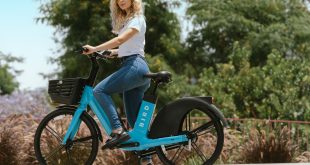The micromobilty industry is ready to adapt to legalisation, according to the general manager of Bird e-scooters, as the UK Government has announced plans to update e-scooter legislation in this parliamentary session.
Following the Queen’s Speech on Tuesday (10th May), a Government spokesperson has confirmed that e-scooter laws will be updated in the upcoming Transport Bill.
Responding to the announcement, Bird general manager James Padden, said that the industry is ready to meet the Government’s standards if e-scooters are legalised, but added that any legislation should not stifle innovation in the sector.
Padden said: “Today’s Transport bill points to the need for innovation to drive decarbonisation of the transport sector as well as providing consumers with new choices to get them from A to B. There is no better technology that is ripe for expansion and delivering on this pledge than e-scooters by expanding the current trial based system into a full opening up of the UK market by allowing the private-use of these vehicles on public roads. It is time that legislation catches up with the innovation of industry and demand from consumers but more than that, this is a potentially critical development for climate action.”
While there was no specific mention of e-scooters in the Queen’s Speech or supporting documents, a Government spokesperson has since confirmed that updated e-scooter legislation will be included in the upcoming Transport Bill, slated for the 2022-23 parliamentary session.
There are currently more than 30 trial scooter rental schemes being run across the country, as the Government plans to use safety data collected from the schemes to inform legislation.
Padden said: “The trial approach undertaken so far has helped the industry and local authorities establish a safe and effective model for incorporating e-scooters into the transport system across towns and cities in the UK but now is the right time to go further and fully open up the UK market. With the overwhelming majority of trials a success the industry is now bursting at the seams for an e-scooter revolution that will see the mode of transport become commonplace, reducing car trips and carbon emissions.”
Mr Shapps said the Government plans to crack down on the illegal use of private e-scooters on the roads, by regulating standards concerning speed, power, lights and other details.
Read more: Government confirms new e-scooter legislation is on the way in Transport Bill
Padded added: “It is right that the Government sets about introducing regulation to ensure that the operators and end products that are available to consumers maintain the high levels of safety standards that we have been developing globally since we founded the industry in 2017. However, it is vital that any regulation doesn’t stifle innovation, or the transformation that e-scooters, and micromobility more widely, offer to create liveable cities. The industry has a long-standing track record of innovation and is ready to adapt to legislation as well as customer needs. To transform our cities and reach net zero, e-scooters can play a powerful role, provided consumers are empowered to make a conscious, low-carbon transport choice. This is supported by the Government’s own national survey which showed that 9% of people would buy an e-scooter if made legal. Regulation that goes too far risks hampering accessibility to such flexible modes of transport for the people that need it most.”
California-based micromobility brand Bird currently operates trial rental schemes across North America, Europe and the Middle East, but is also a retailer of electric bikes and scooters.
 micromobilitybiz Delivering news updates to the micromobility industry, focusing on e-bikes, e-scooters and green transport
micromobilitybiz Delivering news updates to the micromobility industry, focusing on e-bikes, e-scooters and green transport




